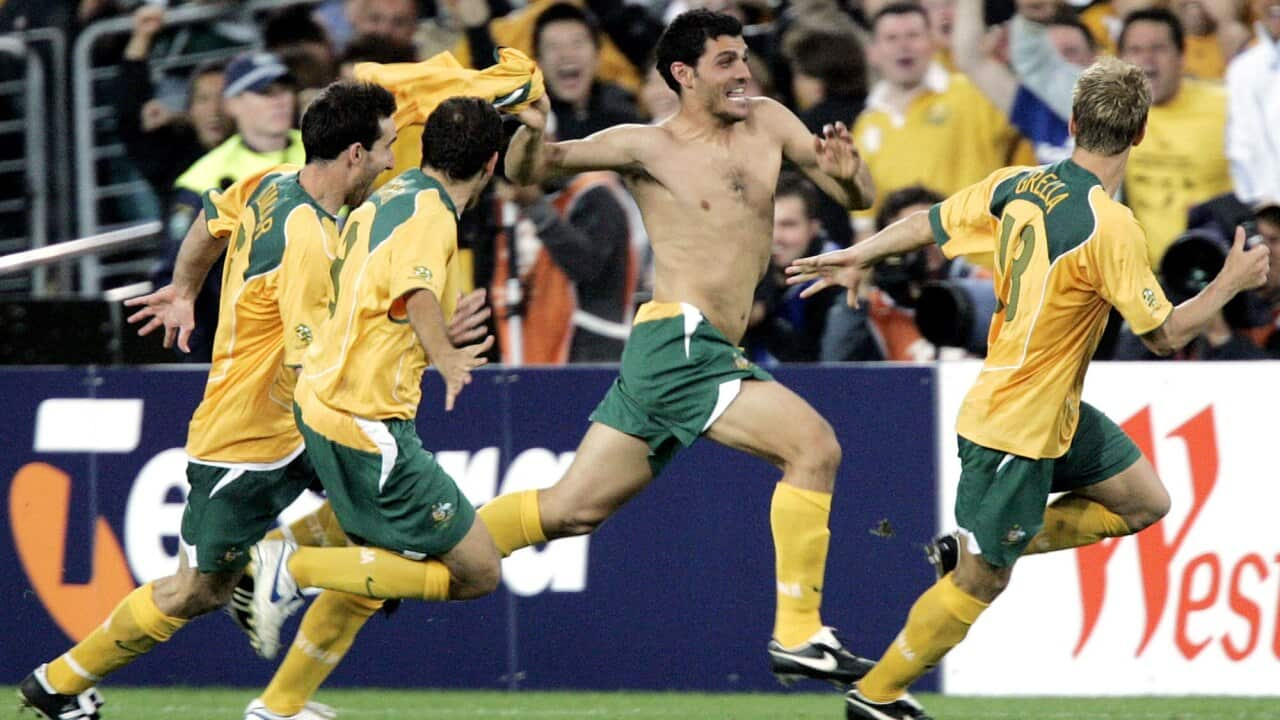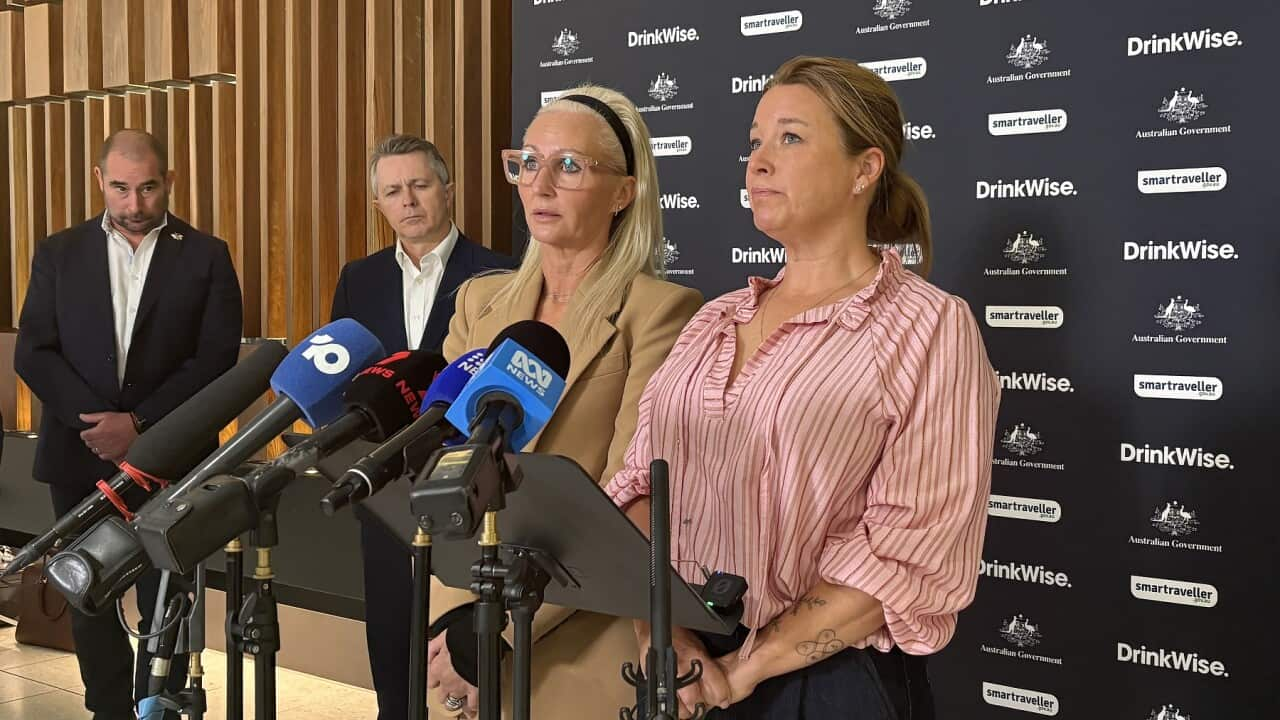"When I was a schoolboy, I couldn't keep my focus for too long and I later developed sympathy for restless kids in the classroom," laughs the Italian-born chef, who now lives in Australia teaching kids Italian - the language and cooking, that is.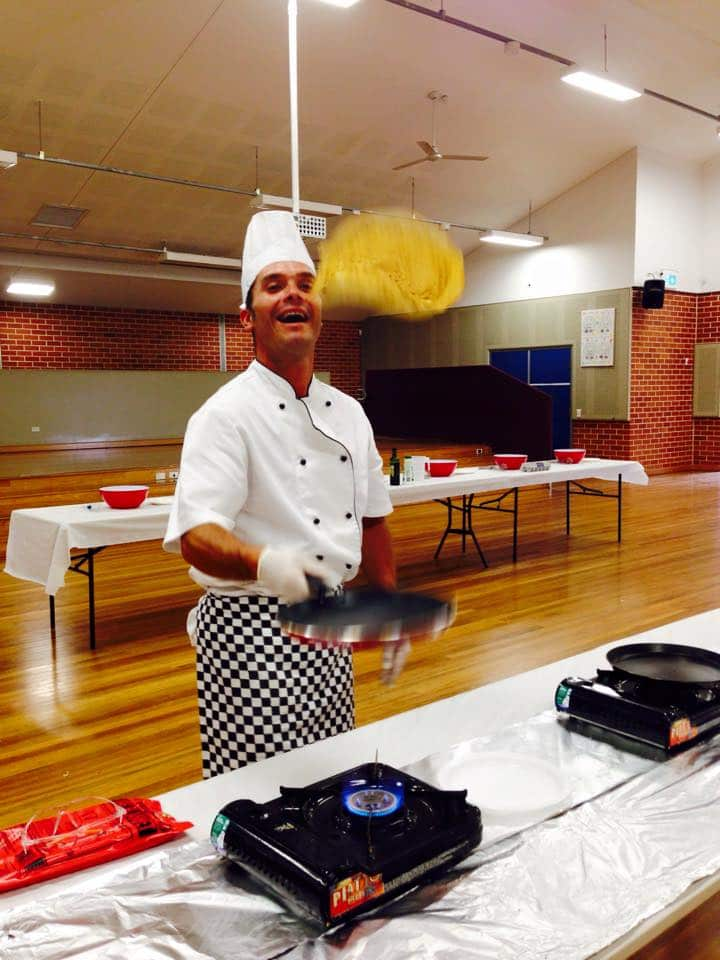 After arriving in Australia, Chef Luca developed a very practical way to teach Italian through food.
After arriving in Australia, Chef Luca developed a very practical way to teach Italian through food.

Luca Roncari in action Source: courtesy of Luca Roncari
He offers interested schools the chance to host a visit from him where he sets up a quasi-production line with the students, who are enlisted as sous-chefs and language students at once.
Each of them is in charge of a cooking task, from basic ones to more complex operations. All instructions are given in Italian and are memorised by the students.
"The students immerse themselves in a role-play and they interpret it very well," says Chef Luca, adding that some of the boys and girls are surprisingly good cooks.
The aim is not only culinary or linguistic improvement. There is also an element of teaching the children something about Italian social traditions.
"I like the idea of going back to the classic Italian Sunday lunch, cooking together and taking time to enjoy what you have made, instead of rushing and gobbling up our food standing," says the chef from Veneto.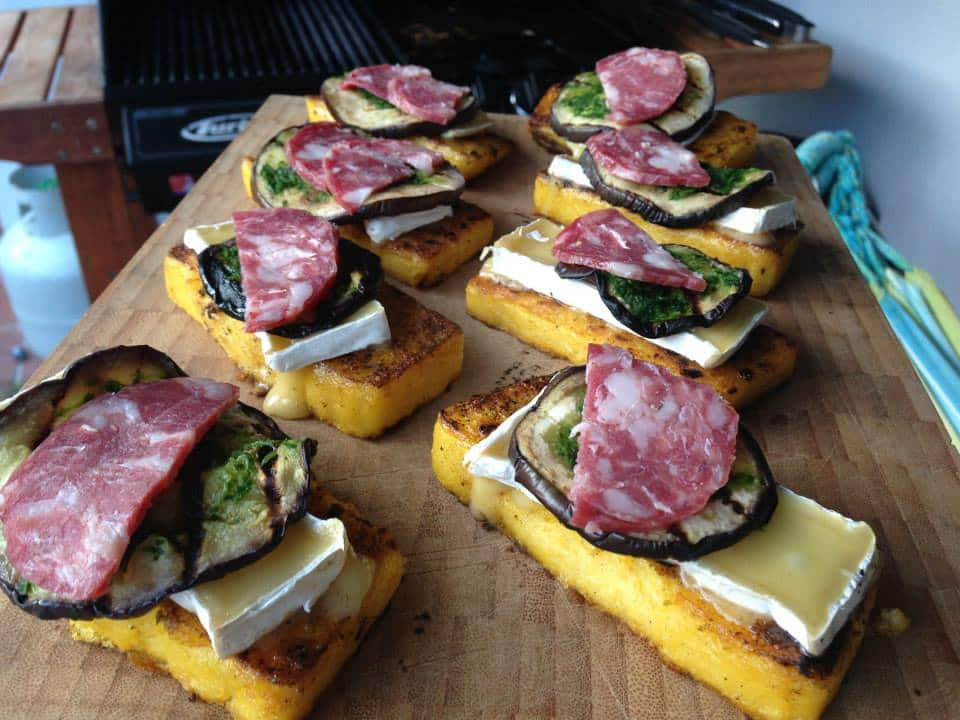 Luca reminisces on his school days and admits that he was not particularly good at memorising things in a classical academic sense. It's led him to believe that in our current school system there is room for a parallel style of teaching, based on emotional and practical intelligence.
Luca reminisces on his school days and admits that he was not particularly good at memorising things in a classical academic sense. It's led him to believe that in our current school system there is room for a parallel style of teaching, based on emotional and practical intelligence.

Polenta and salame Source: courtesy of Luca Roncari
"I always have in my visits teachers approaching me and pointing out apologetically that there are five or six disruptive students in the group," says Chef Luca. "'That's perfect!, is my answer. They will be my main assistants. Why? Because they are what I was at their age."
Chef Luca stresses that we all learn our first language through the association of emotions, sound and images.
"What I want to replicate is a natural form of learning that has been dubbed CLIL, or content and language integrated learning," he says.
"Let's put a language in a context, in my case cooking, and then develop the technical parts, such as syntax, verbs and grammar from there."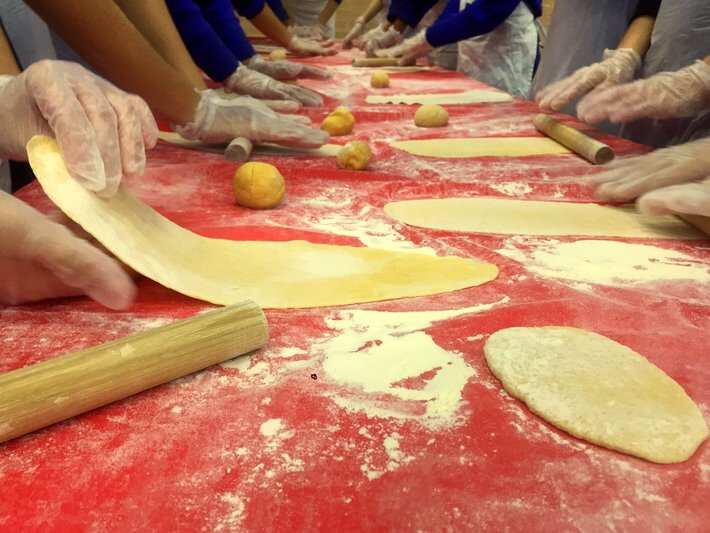 The students' response has been great so far, says Chef Luca, and the whole enterprise has been taken extremely seriously by students and schools.
The students' response has been great so far, says Chef Luca, and the whole enterprise has been taken extremely seriously by students and schools.

Source: courtesy of Luca Roncari
"We all play and joke, but after a while I inform them that they are going to eat only what they manage to cook," chuckles the chef. "Seeing a boy or a girl flipping a crespella [Italian crepe] makes me proud, because it shows that there is great potential in everyone."
You can listen to Luca's full interview in Italian at the top of this story
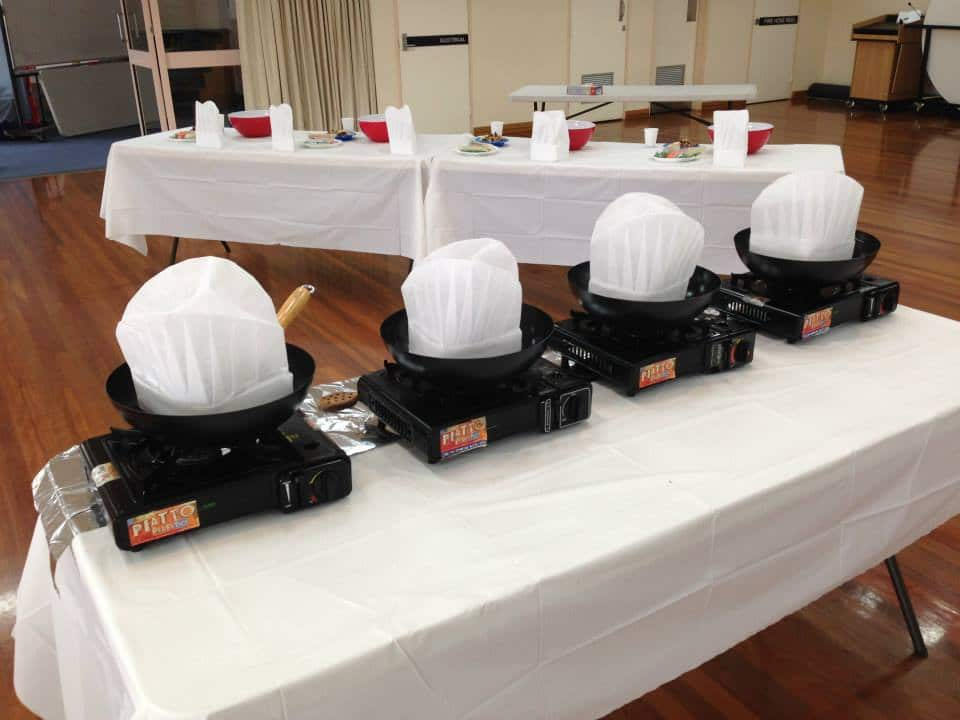
Source: courtesy of Luca Roncari



